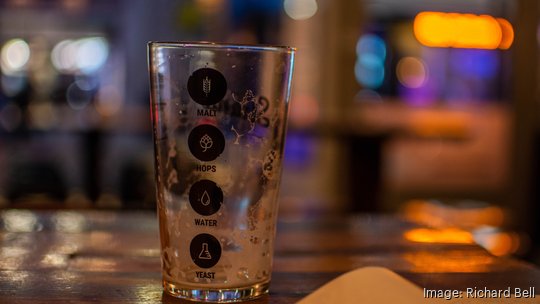
An East Bay startup that bioengineers custom strains of yeast for brewers and winemakers recently raised more than $10.5 million in a previously unreported Series A funding round.
Berkeley Yeast, headquartered in neighboring Oakland, disclosed the equity fundraise in a Securities and Exchange Commission filing this month. The filing indicates six participating investors but does not identify them.
The raise brings the young startup to $15.3 million in outside funding to date, according to PitchBook, since an initial grant from the National Science Foundation in 2017. Other past investors include locals Refactor Capital (Burlingame), Codon Capital (San Francisco), Netherlands-based Anterra Capital and Jeffrey Kim, co-founder and CEO of Radiant Genomics in Emeryville.
The startup did not return a request for comment Monday, but I'll update this story if I hear back.
Leading the latest funding round was Berkeley Yeast's CEO Charles Denby, a former post-doctoral researcher at a UC Berkeley lab studying yeast's applications for biofuels and pharmaceuticals.
In 2017 Denby turned his expertise to a new hobby with friends — brewing beer — and discovered he could bioengineer yeast strains to produce certain aroma- and flavor-releasing compounds by themselves through their own fermentation, rather than through their typical introduction manually at a later step via a process known as "dry hopping."
Denby then tested out his early results at Lagunitas Brewing Company in Petaluma where a team of taste-testers found surprising results comparing beer made with the genetically modified yeast and beer made with the traditional process.
“It showed that beer brewed with our strains created hop flavor,” Denby told the blog Good Beer Hunting in 2020, when his company was then known as Berkeley Brewing Science. “The fact that (the tasters) perceived a much more intense hop flavor and aroma from the beers that didn’t have any dry hop in them was a very significant result for us.”
The implications of genetically modified yeast are manifold. On its website Berkeley Yeast describes how its custom strains can give commercial brewers "unprecedented control over flavors," better protection from contamination during the brewing process, greater shelf stability and more efficient production.
The company advertises, for instance, that its yeast strains can produce flavor compounds more consistently than ingredients typically added later in the process to produce those same compounds. It could also potentially save brewers cost on added ingredients and how long it takes to brew a batch.
Berkeley Yeast sells at least five varieties of its own yeast strains and also offers to work one-on-one with breweries or wineries to tailor a custom formula to their production and taste needs.
Last year Denby told trade publication Seven Fifth Daily that bioengineered yeast strains stand to become increasingly necessary in light of the impact climate change and wildfire smoke has on essential crops for the industry.
"Brewers are going to have to figure out how to make the same great-tasting beer with fewer high-quality raw ingredients,” Denby said.



